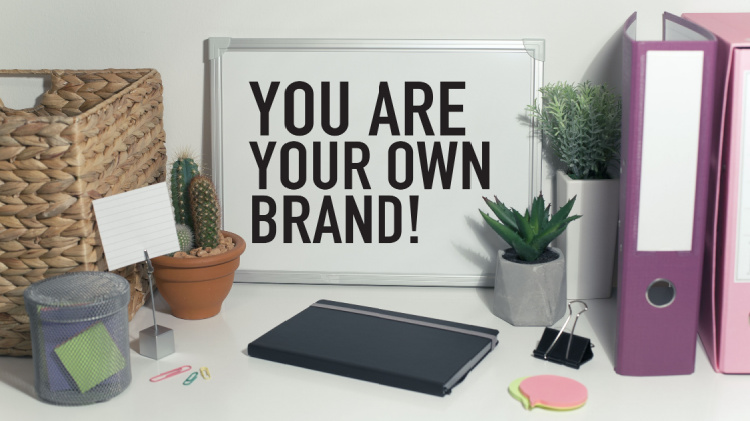
Get Paid to Share Your Expertise
Help shape the future of business through market research studies.
See Research StudiesMany of us only focus on personal branding when preparing job application materials or developing our social media profiles. But really, your personal brand matters all the time, even when you’re already employed.
How is personal branding defined?
“Essentially, it is how you project your brand and its values to the world and ensure that your target audience knows who you are, what you stand for, and why it’s worth choosing you over your competitors,” said Adam Heitzman for Search Engine Journal.
In other words, your colleagues and supervisors should always be able to identify your unique skill set and particular contributions to the company at all times. When you’re eying a promotion, then your personal brand will help you stand out from others vying for the position.
In this article, we’ll talk about why personal branding is so important when seeking a promotion.
Carving Out Your Personal Brand Niche
Personal branding is all about prioritizing certain types of contributions to your field. Your niche should be an expertise that you have and others know you have. For instance, perhaps you’re well-known for effectively planning research methodology for projects.
When you have a reputation for being skilled in a particular area, that’s your personal brand. It’s a skill set that only you have that others value and recognize.
In turn, the employee known for their skill in the area closely related to the position with promotional potential would be heavily considered. In particular, this individual would likely be promoted over someone who was a jack of all trades or who hadn’t conveyed their personal brand at the office.
What if you haven’t made a niche for yourself? If you’re eying a promotion, then you want to prioritize only certain types of projects and skills. This is the best way to establish your personal brand.
The first step is figuring out what skills you’d most like to prioritize. What are your values? What do you care most about? Don’t choose a personal brand simply because you think it’s unique; your priority should be identifying one that feels authentic to you.
From there, you can choose projects and contribute to team meetings that let you focus on the channel you’ve identified.
“Consider creating a ‘persona’ for yourself under which all of your responsibilities lie. For instance, you could decide you want to be the person in the office who streamlines processes or creates professional development opportunities. Then, if a project arises that doesn’t fit either your strengths or your persona, you should turn it down,” described Ivy Exec in a recent article.
Does the personal brand you’re conveying fit into the position you’d like to have?
The thing about personal branding is that you always have one, even if you didn’t create it yourself. If you don’t take control of how you’re perceived at work, then your coworkers and supervisors are still going to have a vision of who you are and the role you fill at the organization.
That’s why taking a hard look at how you’re perceived at work is important. Do you take on projects that demonstrate your leadership potential? Are you known as a manager or as someone who prefers to take direction from others?
It’s also worth considering the darker side of branding and promotion.
“Many organizations have an unspoken concept of who represents the most desirable employees. Very often, it’s an attempt to build a certain image. For example, a company may try to position itself as young, vibrant, and attractive. They will attempt to make this image a reality by hiring people who are consistent with that profile,” wrote Kevin Mercadante for the job advice site Out of Your Rut.
So, take stock of the personal brands of the upper-level management at your company. Do they all fit into a single “type”? If so, can you see yourself among them?
If the answer is no, you might be better off taking your brand to an organization that recognizes your worth.
Defining Your Personal Brand
Many people believe they can best serve their companies by being as flexible and adaptable as possible. But this reality is, in fact, standing in the way of your personal branding.
This is what happened to HBR writer Nahia Orduña in her early career. She was working as diligently as possible for organizations that laid her off or made her position redundant.
She wishes that she’d known about personal branding back then, defining the concept as follows:
“To me, this means being up-to-date in your industry, making you more resilient and adaptable. It means being recognized for your unique self and skills and increasing your visibility, access to opportunities, and growth.”
So, if you’re eying a promotion at your company, you don’t want to take on every project that comes your way. Instead, focus on developing focused expertise that everyone around you understands.
Next, consider how the upper-level professionals conduct themselves and decide if you could count yourself among them. If you don’t think the way you’re coming across at work – maybe you’re too serious or too quiet – would get you there, then determine if these are changes you’d be willing to make to get promoted. If they’re not, you may want to consider looking for advancement elsewhere.
Are you ready to take control of the impression you make at your organization? Read these five inspiring examples of personal branding done well.

 Ivy Exec
Ivy Exec